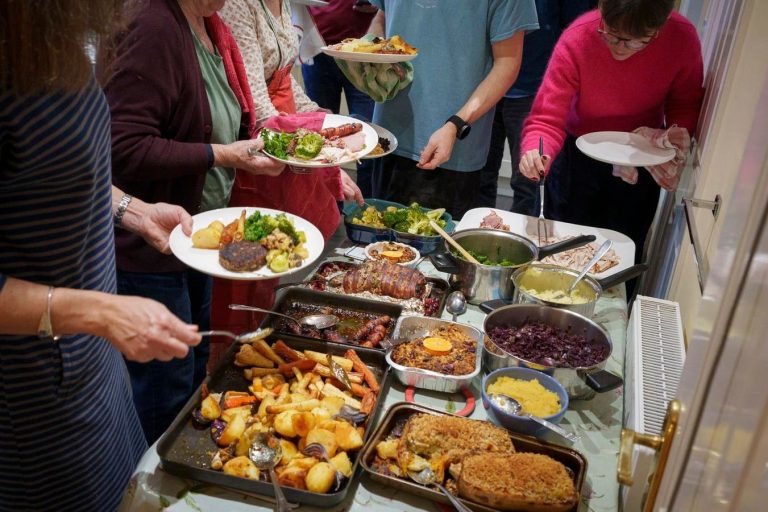With increased life expectancies and people delaying retirement, there are five generations working together in the workplace. But once we leave the workforce, the people we tend to interact is usually not as diverse.
Think of the friends with whom you tend to socialize with the most. My guess is that they are all about the same in age. It is natural for us to surround ourselves with people like ourselves in age, values, beliefs, and activities.
But one secret for positive aging is to connect with people across generations. Older adults often find renewed purpose through mentoring, caregiving, or sharing their wisdom with younger people. And younger people encourage older adults to stay curious, continue to be engaged, and relevant. According to the Harvard Study of Adult Development, regardless of age, strong relationships are the greatest predictor of happiness and health in later life. To cultivate these relationships, we often must be intentional about making this happen.
One way to bring people of varying ages together is through a concept called Generations Over Dinner. On the website, It is described as “a dinner party challenge to gather multiple generations at the table.” To learn more about how these dinner parties work, I contacted Pat Whitty, founder of Breaking Age: Flourishing in the Second Half of Life. I met Pat a few years ago when I attended a workshop at the Modern Elder Academy (MEA) in Baja, Mexico. On a MEA webinar, Pat was explaining his involvement with Generations Over Dinner with the San Antonio Area Foundation.
Generations Over Dinner is an adaptation of the book by Michael Hebb titled “Let’s Talk About Death (Over Dinner): An Invitation and Guide to Life’s Most Important Conversation.” Pat explained how these dinners help to address the loneliness epidemic we are currently experiencing. Loneliness was an epidemic before the pandemic, and it has only become worse for people of all ages—not just the elderly. We value our independence rather than realize we are interdependent. With society being so polarized, “we are not talking to each other, but we are talking about each other,” said Pat.
The dinners are supported by an organization called Successfully Aging and Living in San Antonio (SALSA). The goal is to bring generations to tables quarterly where the food is served family style, and the emphasis is on having conversations. There are seven people plus a trained facilitator at each table. Each dinner has a theme where five to seven open-ended questions are options for discussion. The focus for each dinner is on these three aspects for everyone to:
- Be seen
- Be heard
- Be appreciated
Based on Pat’s experience with these dinners, he told me the dinners have been inspirational and transformational. When I asked Pat how they measure the outcomes, he said, “You know it when you feel it.” They often reach out to not-for-profit organizations to invite underprivileged young people to join. “Some of these youths have not had the experience of sitting with adults and having conversations.”
As Chip Conley, the founder of the Modern Elder Academy, likes to say, “Wisdom can’t be taught, but it can be shared.” Wise sages have much to share as do younger generations. There is so much we can learn from each other. But without the structure of a workplace, we must work harder at developing intergenerational relationships. Being involved in a faith community, interest groups, or classes certainly helps to get to know people of different ages.
Could you start your own generations over dinner by inviting a variety of people whom you want to get to know better? It would not take that much time, and it could even be a potluck event. Pat closed our interview with this powerful statement. “If we could go through every day allowing people with whom we interact to be seen, to be heard, and to be appreciated, what a great thing it would be.”
Read the full article here









